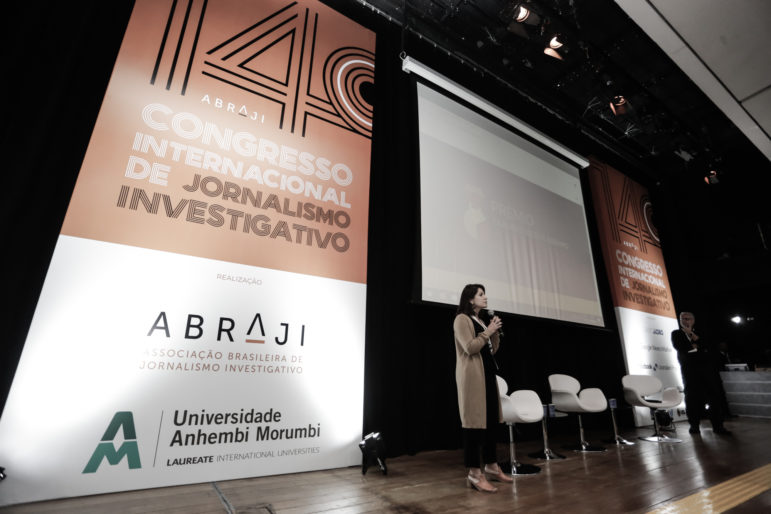

European Parliament Taken to Court by Journalists from all EU

Part of the team of 29 journalists met during the Global Investigative Journalism Conference in Lillehammer. Kristof Clerix/MO*
For the first time, journalists representing all European member states have teamed up to file complaints with the European Court of Justice against the European Parliament (EP). The institution refused to grant the journalists’ requests for access to information related to how the 751 Members of the European Parliament (MEPs) spend their allowances. Journalists filed complaints with the Court of Justice on 13 November.*
The team of 29 journalists requested four years of copies of spending records of MEPs representing their respective countries. Specifically, they asked for documents regarding the money MEPs receive on top of their salaries, including a general allowance, travel allowance, daily subsistence, and funds for staffing. But the EP refused to open these expenditures to public scrutiny.
This European-wide freedom of information initiative – The MEPs Project – was formed in June when journalists representing all members of the EU teamed up and requested access to EP documents showing how, when, and for what MEPs spent their general, travel, daily, and staff allowances.
 In 2014, according to the EP, 27 percent of the Parliament’s 1.756 billion euro budget was dedicated to MEPs’ expenses. This yearly amount of more than 474 million euros consists of their salaries, costs for travel, offices, and the pay of personal assistants. The European public is entitled to know how almost half a billion euros of its taxes are being spent. The European Parliament spends 3.2 million euros each month solely on MEPs’ general expenditure allowance (almost 40 million euros per year). No one is monitoring this spending. Meanwhile the MEPs, who are the only elected representatives of European citizens, have repeatedly voted down efforts to regulate this issue.
In 2014, according to the EP, 27 percent of the Parliament’s 1.756 billion euro budget was dedicated to MEPs’ expenses. This yearly amount of more than 474 million euros consists of their salaries, costs for travel, offices, and the pay of personal assistants. The European public is entitled to know how almost half a billion euros of its taxes are being spent. The European Parliament spends 3.2 million euros each month solely on MEPs’ general expenditure allowance (almost 40 million euros per year). No one is monitoring this spending. Meanwhile the MEPs, who are the only elected representatives of European citizens, have repeatedly voted down efforts to regulate this issue.
In September, the European Parliament denied all of the journalists’ requests for access to information on the grounds of personal data protection, as well as an allegedly excessive workload that granting access to these documents could cause. The EP also said it did not hold any documents related to how MEPs spent their general allowances.
The journalists are now turning to the European Court of Justice, seeking redress for the fact that the EP fails in its proclaimed function as the guardian of transparency, and thus disregards the Treaty of the EU.
“By simply denying access to requested documents the European Parliament is effectively granting MEPs the right to secretive public spending and giving them full immunity from public monitoring of their dealings,” said the team’s lawyer Nataša Pirc Musar, Slovenia’s former Information Commissioner. “We argue that the reasons given to the reporters for denying their requests have no basis in any European regulation,”
“The MEPs Project is unprecedented,” added The MEPs Project’s leader, Slovenian journalist Anuška Delić. “This is the first known European-wide collaboration of journalists in the area of freedom of information, specifically regarding access to what we believe are inarguably public records of a European body. The MEPs’ allowances are intended to be spent exclusively for their professional, not personal needs, and should thus not be allowed to remain hidden from the European public,”
*Note: The complaint concerning Irish MEPs will be filed in due course.
The Team of 29 journalists include representatives of five GIJN member organizations: atlatszo.hu, the Czech Center for Investigative Journalism, Investigative Reporting Denmark, Investigative Reporting Project Italy, and re:Baltica. The full Team Statement and List of Members are available here.









